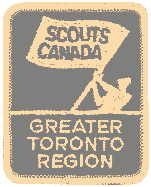
www.gtrsi.com
 |
www.gtrsi.com |
 |
It is less expensive to be environmentally considerate than to pollute! Polluting costs money because it wastes maney; therefore, being enviro-smart will save you a lot of money! Here are some things you can do to help.
|
Disclaimer: Anything posted to this Home Page
are the opinions of the individuals who posted them and are not the views of Scouts Canada. |